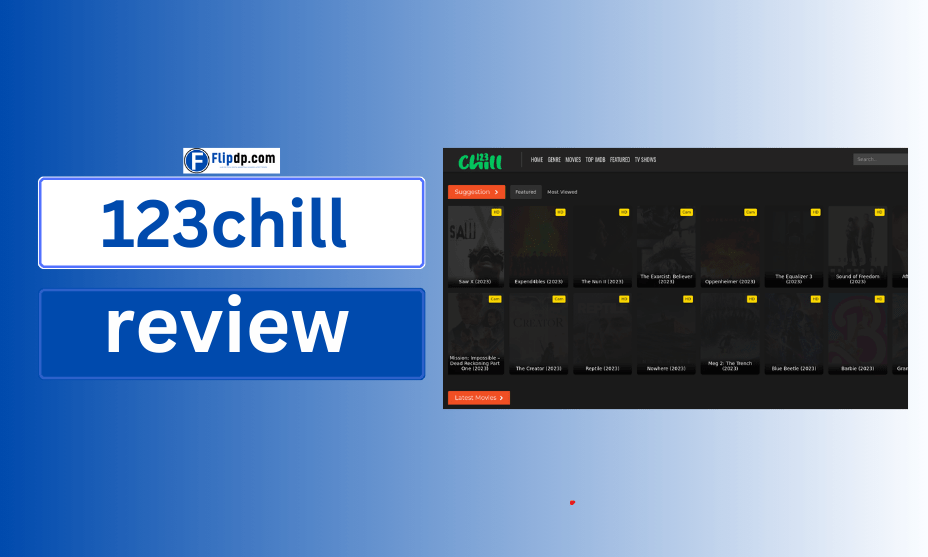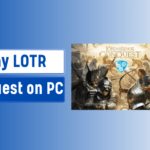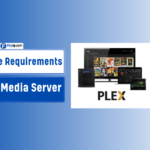Why Was Facebooks Acquisition of WhatsApp, In 2014, Facebook made a monumental move in the tech industry by acquiring WhatsApp for a staggering $21.8 billion. This acquisition not only reshaped the landscape of social media and messaging apps but also raised numerous questions about regulatory approvals, strategic business decisions, and the future of digital communication.
This comprehensive article delves into the various facets of this landmark deal, exploring why Facebook’s acquisition of WhatsApp was approved and its profound implications on the tech ecosystem.
General Overview
The acquisition of WhatsApp by Facebook in February 2014 marked one of the largest deals in the history of technology mergers. Facebook, already a giant in the social media realm, sought to expand its footprint in the mobile messaging space by bringing WhatsApp under its umbrella.
At the time, WhatsApp boasted over 600 million active users, making it an attractive target for Facebook’s growth strategy. The deal was not only significant in terms of the financial outlay but also in its potential to influence the dynamics of global digital communication.
This section provides a broad overview of the acquisition, setting the stage for a deeper exploration of the factors that led to its approval.
Why Was Facebook’s Acquisition of WhatsApp for $21.8B Approved?
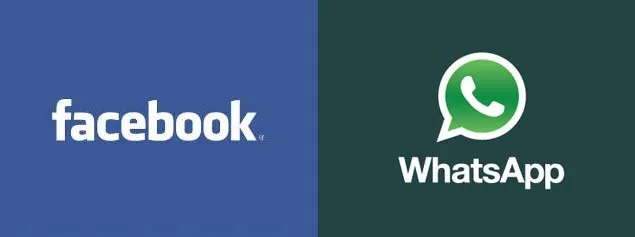
The approval of Facebook’s $21.8 billion acquisition of WhatsApp was the result of a confluence of strategic, regulatory, and market factors. Regulators scrutinized the deal to ensure it did not stifle competition or harm consumer interests.
Facebook presented a compelling case that the merger would enhance consumer choice by integrating two leading platforms, thereby offering more comprehensive services. Additionally, Facebook addressed antitrust concerns by highlighting the complementary nature of the two companies, emphasizing that WhatsApp’s independent user base and operational model would continue to thrive under Facebook’s ownership.
The approval was also influenced by the global nature of the deal, with different regulatory bodies across various jurisdictions assessing the merger’s impact on their respective markets.
Facebook’s $21.8 Billion WhatsApp Acquisition: A Comprehensive Analysis
This section provides an in-depth analysis of the WhatsApp acquisition, examining the motivations behind Facebook’s decision, the financial implications, and the strategic advantages gained. Facebook aimed to solidify its dominance in the social media and messaging sectors by acquiring WhatsApp’s vast user base and its innovative technology.
The $21.8 billion valuation reflected WhatsApp’s rapid growth, strong user engagement, and potential for future monetization. By integrating WhatsApp into its ecosystem, Facebook could leverage synergies in data analytics, advertising, and cross-platform functionalities.
This acquisition also positioned Facebook to better compete with other tech giants like Google and Apple in the messaging and communication space.
An Inside Look at Facebook’s WhatsApp Acquisition and Its Approval

Gaining an insider perspective on the acquisition reveals the intricate negotiations and strategic planning that underpinned the deal. Facebook’s leadership recognized the importance of WhatsApp in the global market, particularly in regions where Facebook’s own messaging services were less dominant.
The approval process involved extensive dialogue with regulators, addressing concerns related to data privacy, market competition, and user choice. Facebook assured regulators that WhatsApp would retain its brand identity and operational independence, mitigating fears of monopolistic practices.
This section explores the internal dynamics, key decision-makers, and the strategic roadmap that facilitated the acquisition’s approval.
Regulatory & Legal Perspective
Regulatory Reasons Behind Facebook’s Acquisition of WhatsApp
Regulators play a critical role in overseeing large mergers and acquisitions to ensure they do not harm competition or consumer interests. In the case of Facebook’s acquisition of WhatsApp, several regulatory reasons were considered.
Firstly, the merger was evaluated for its impact on market competition. Regulators assessed whether the deal would lead to a monopoly or reduce consumer choice. Facebook demonstrated that WhatsApp would continue to operate independently, maintaining its unique value proposition in the messaging market.
Additionally, the acquisition was scrutinized for data privacy concerns, with Facebook committing to uphold WhatsApp’s existing privacy policies and encryption standards. By addressing these regulatory concerns proactively, Facebook secured the necessary approvals across multiple jurisdictions.
Why Did Regulators Approve Facebook’s Purchase of WhatsApp?
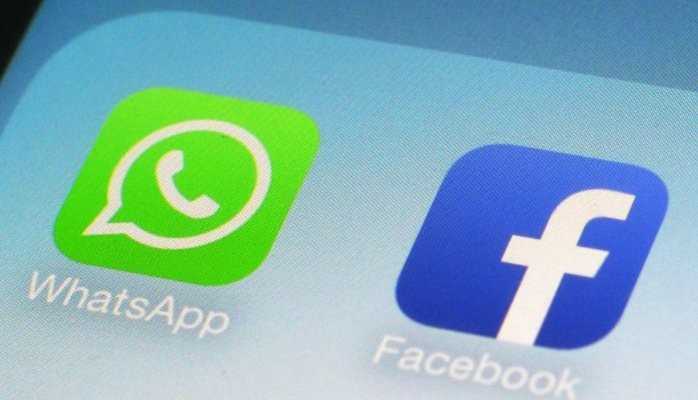
Regulators approved Facebook’s purchase of WhatsApp based on several key factors. Facebook provided a comprehensive justification for the acquisition, emphasizing the complementary strengths of both companies.
Regulators were convinced that the merger would not significantly impede competition but rather enhance consumer experience by integrating two leading communication platforms. Facebook also committed to maintaining WhatsApp’s operational autonomy and respecting user privacy, which alleviated concerns about data misuse or monopolistic control.
Moreover, the global scale of the deal meant that multiple regulatory bodies had to approve it, each of which conducted thorough reviews before granting their consent. The overall assessment concluded that the benefits of the acquisition outweighed potential risks, leading to its approval.
The Role of Competition Authorities in Approving Facebook’s WhatsApp Deal
Competition authorities are tasked with ensuring that mergers and acquisitions do not negatively impact market competition. In approving Facebook’s WhatsApp deal, these authorities conducted detailed analyses of market dynamics, assessing factors such as market share, consumer choice, and potential barriers to entry for other players.
They evaluated whether the acquisition would lead to reduced competition or enable Facebook to leverage WhatsApp’s user base to gain undue market power.
To mitigate antitrust concerns, Facebook agreed to certain conditions, such as preserving WhatsApp’s brand and not integrating it fully with Facebook’s core services, thereby maintaining distinct offerings for consumers.
These measures were instrumental in gaining the approval of competition authorities.
How Regulatory Bodies Evaluated Facebook’s $21.8B Deal for WhatsApp
Regulatory bodies evaluated Facebook’s $21.8 billion deal for WhatsApp through a multifaceted approach. They conducted thorough due diligence, examining the financial health, user demographics, and market positioning of both companies.
The evaluation process included assessing the potential for data consolidation and its implications for user privacy. Regulatory bodies also considered the strategic intentions behind the acquisition, ensuring that it aligned with fair competition practices. Additionally, they engaged in consultations with stakeholders, including consumer advocacy groups and industry experts, to gather diverse perspectives on the merger’s impact.
The comprehensive evaluation process ultimately determined that the acquisition met regulatory standards and would not adversely affect the market or consumers.
Antitrust Concerns and the Approval of Facebook’s WhatsApp Acquisition
Antitrust concerns revolve around preventing monopolistic practices that can harm consumers and stifle competition. In the context of Facebook’s acquisition of WhatsApp, regulators closely examined whether the merger would grant Facebook excessive market power in the messaging and social media sectors.
Facebook addressed these concerns by demonstrating that WhatsApp’s distinct user base and operational model would remain intact post-acquisition. They also highlighted the complementary nature of the two platforms, arguing that the merger would enhance user experience through integrated services rather than reduce competition.
By proactively addressing antitrust issues and providing evidence that the acquisition would not lead to monopolistic dominance, Facebook successfully navigated regulatory scrutiny and secured approval.
Strategic & Business Perspective
Why Did Facebook Spend $21.8 Billion to Acquire WhatsApp?
Facebook’s decision to spend $21.8 billion to acquire WhatsApp was driven by multiple strategic imperatives. Firstly, Facebook aimed to consolidate its position in the global messaging market, leveraging WhatsApp’s extensive user base and strong presence in key regions like Europe, Asia, and Latin America. By integrating WhatsApp, Facebook could offer a more comprehensive suite of communication tools, enhancing user engagement and retention.
Additionally, the acquisition provided Facebook with valuable data insights, enabling more targeted advertising and improved monetization strategies. Furthermore, acquiring WhatsApp was a proactive move to preempt potential competition from other tech giants looking to dominate the messaging space, thereby securing Facebook’s long-term growth and market leadership.
Facebook’s Strategic Reasons for Acquiring WhatsApp
From a strategic standpoint, Facebook’s acquisition of WhatsApp served several key purposes. It allowed Facebook to diversify its product offerings beyond its traditional social media platform, tapping into the rapidly growing mobile messaging market. WhatsApp’s global reach complemented Facebook’s existing services, facilitating cross-platform integration and enhancing the overall user experience.
The acquisition also provided Facebook with access to WhatsApp’s advanced messaging technology, including end-to-end encryption and real-time communication features, which could be leveraged to develop new functionalities and services.
Moreover, by bringing WhatsApp under its umbrella, Facebook could better compete with other major players in the tech industry, such as Google’s messaging services and emerging social platforms, thereby strengthening its competitive edge.
What Made WhatsApp Worth $21.8 Billion to Facebook?
WhatsApp’s valuation of $21.8 billion was justified by several factors that made it an attractive investment for Facebook. Firstly, WhatsApp had demonstrated impressive growth, boasting over 600 million active users at the time of acquisition, with projections indicating continued expansion.
The app’s high user engagement and low churn rate underscored its strong market position and user loyalty. Additionally, WhatsApp’s minimalistic design and focus on privacy resonated with users, setting it apart from other messaging apps and contributing to its widespread adoption.
The platform’s potential for monetization through future services and integrations also played a significant role in its valuation. Furthermore, WhatsApp’s strategic fit with Facebook’s existing services and its ability to enhance Facebook’s ecosystem added to its perceived value, justifying the substantial investment.
Strategic Importance of WhatsApp in Facebook’s Growth Plan
WhatsApp held strategic importance in Facebook’s growth plan by enabling the company to expand its influence in the global communication landscape. The acquisition allowed Facebook to tap into emerging markets where WhatsApp was particularly popular, such as India, Brazil, and parts of Africa, thereby increasing Facebook’s international footprint.
WhatsApp’s robust infrastructure and scalability complemented Facebook’s technological capabilities, facilitating the development of integrated services and features that could enhance user engagement across platforms. Additionally, WhatsApp’s user base provided Facebook with valuable data insights, informing more effective advertising strategies and personalized content delivery.
By incorporating WhatsApp into its ecosystem, Facebook aimed to create a seamless communication network that could drive sustained growth and innovation in the digital space.
How WhatsApp Fits into Facebook’s Messaging App Strategy
WhatsApp seamlessly fits into Facebook’s broader messaging app strategy by complementing its existing services and enhancing overall communication capabilities. While Facebook Messenger primarily serves as a platform for interacting within the Facebook ecosystem, WhatsApp operates as a standalone global messaging service with a focus on simplicity and privacy.
By integrating WhatsApp, Facebook can offer a unified communication experience, bridging the gap between social media interactions and personal messaging. This integration allows for cross-platform functionalities, such as sharing content between Messenger and WhatsApp, thereby increasing user engagement and retention.
Furthermore, WhatsApp’s advanced features, including end-to-end encryption and voice/video calling, enrich Facebook’s messaging portfolio, enabling the company to cater to diverse user needs and preferences across different regions and demographics.
The Business Logic Behind Facebook’s WhatsApp Deal
The business logic behind Facebook’s acquisition of WhatsApp was rooted in the pursuit of strategic growth, market expansion, and competitive advantage. By acquiring WhatsApp, Facebook aimed to secure a dominant position in the global messaging market, leveraging WhatsApp’s extensive user base and technological prowess to enhance its service offerings.
The deal was a strategic investment in diversifying Facebook’s revenue streams beyond advertising, with potential avenues for monetization through premium services, business integrations, and value-added features on WhatsApp. Additionally, the acquisition allowed Facebook to consolidate its market presence, preempting potential competition from other tech giants and ensuring sustained dominance in the social media and messaging sectors.
The synergistic benefits of combining Facebook’s data analytics and advertising capabilities with WhatsApp’s communication platform further underscored the business rationale behind the deal.
WhatsApp Acquisition: How It Helped Facebook Expand Its Ecosystem
The acquisition of WhatsApp significantly contributed to Facebook’s ecosystem expansion by integrating a leading messaging platform into its suite of services. This integration facilitated seamless interactions between Facebook’s social media platforms and WhatsApp, enhancing user experience through unified communication channels.
By incorporating WhatsApp’s functionalities, Facebook could offer a more comprehensive range of services, including instant messaging, voice and video calls, and secure communication options, thereby attracting a broader user base. The expansion of Facebook’s ecosystem through WhatsApp also enabled the company to explore new revenue streams, such as business messaging solutions and e-commerce integrations within WhatsApp.
Furthermore, the acquisition allowed for greater cross-platform data sharing and analytics, providing Facebook with deeper insights into user behavior and preferences, which could be leveraged to refine marketing strategies and personalize user interactions.
Facebook’s Acquisition Strategy: Why WhatsApp Was a Key Target
WhatsApp was a key target in Facebook’s acquisition strategy due to its substantial user base, strong market presence, and innovative technology. Facebook recognized the immense potential of WhatsApp to enhance its global reach, particularly in regions where WhatsApp was the preferred messaging app.
The strategic alignment between Facebook’s vision for comprehensive digital communication and WhatsApp’s capabilities made the acquisition an attractive proposition. Additionally, WhatsApp’s focus on user privacy and simplicity resonated with Facebook’s objectives of providing secure and user-friendly communication tools.
By targeting WhatsApp, Facebook aimed to fortify its position in the competitive tech landscape, ensuring sustained growth and relevance in the evolving digital ecosystem. The acquisition also served as a strategic move to integrate complementary services, fostering innovation and enhancing the overall value proposition of Facebook’s offerings.
Economic & Financial Insights
WhatsApp Valuation in 2014: Was It Really Worth $21.8 Billion?
The valuation of WhatsApp at $21.8 billion in 2014 was a subject of extensive debate within the tech and financial communities. Critics questioned whether the high price tag was justified, given WhatsApp’s revenue model, which primarily relied on a minimal subscription fee and had yet to explore significant monetization avenues.
However, proponents argued that WhatsApp’s valuation was based on its impressive growth trajectory, vast user base, and potential for future revenue generation through value-added services and business integrations.
The strategic importance of acquiring a leading global messaging platform also played a role in justifying the valuation, as it positioned Facebook to better compete with other tech giants and preempt potential market consolidation. Ultimately, the valuation reflected the market’s confidence in WhatsApp’s long-term potential and its strategic fit within Facebook’s broader growth strategy.
The Economics Behind Facebook’s Purchase of WhatsApp
The economics behind Facebook’s purchase of WhatsApp were driven by a combination of strategic investment, market positioning, and anticipated synergies. Facebook recognized that acquiring WhatsApp would provide access to a large and engaged user base, enhancing its overall market share in the digital communication space.
The investment was expected to yield long-term financial benefits through diversified revenue streams, including potential monetization of WhatsApp’s services and enhanced advertising capabilities through integrated data analytics. Additionally, the acquisition was seen as a means to drive cost efficiencies and operational synergies by leveraging Facebook’s existing infrastructure and technological expertise to support WhatsApp’s growth and innovation.
The strategic alignment between the two companies’ visions and the potential for cross-platform integration further underscored the economic rationale behind the purchase, positioning Facebook for sustained growth and competitive advantage in the evolving tech landscape.
How Facebook Managed to Finance the $21.8B Acquisition of WhatsApp
Financing a $21.8 billion acquisition required a sophisticated financial strategy, leveraging a combination of cash reserves, debt financing, and equity issuance. Facebook utilized its substantial cash reserves and strong financial position to cover a significant portion of the deal, ensuring that the acquisition did not overly strain its balance sheet.
Additionally, Facebook may have employed debt financing to secure the necessary funds without diluting existing shareholders’ equity. In some cases, large tech acquisitions also involve issuing new shares to fund part of the purchase price, thereby spreading the financial risk and leveraging the company’s market valuation.
By employing a balanced financing approach, Facebook successfully managed the substantial financial outlay required for the WhatsApp acquisition, ensuring that the deal was economically viable and aligned with its long-term financial strategy.
Evaluating the Cost-Benefit Analysis of Facebook Buying WhatsApp
A comprehensive cost-benefit analysis of Facebook’s acquisition of WhatsApp reveals a strategic investment aimed at long-term growth and market dominance. On the cost side, the $21.8 billion outlay represented a significant financial commitment, involving substantial cash reserves and potential debt financing.
Additionally, integrating WhatsApp into Facebook’s ecosystem posed challenges related to operational alignment, cultural integration, and potential regulatory compliance costs. However, the benefits outweighed these costs, as the acquisition provided Facebook with access to WhatsApp’s vast and engaged user base, enhancing its global reach and market share in the messaging space.
The strategic synergies between Facebook and WhatsApp, including data integration, cross-platform functionalities, and enhanced advertising capabilities, contributed to increased revenue potential and operational efficiencies. Furthermore, the acquisition positioned Facebook to better compete with other tech giants, ensuring sustained growth and innovation in the rapidly evolving digital communication landscape.
Privacy & User Data Concerns
Privacy Concerns Related to Facebook’s Acquisition of WhatsApp
Privacy concerns were at the forefront of discussions surrounding Facebook’s acquisition of WhatsApp. Given the sensitive nature of personal communications on WhatsApp, regulators and users alike were apprehensive about how Facebook might handle user data post-acquisition.
There were fears that Facebook could leverage WhatsApp’s data to enhance its advertising capabilities, potentially compromising user privacy. Additionally, the integration of WhatsApp into Facebook’s ecosystem raised questions about data sharing between the platforms and the implications for user consent and data protection.
To address these concerns, Facebook committed to maintaining WhatsApp’s distinct privacy policies and ensuring that WhatsApp’s end-to-end encryption remained intact. However, ongoing debates about data privacy and the potential for increased surveillance continued to shadow the acquisition, highlighting the delicate balance between business growth and user privacy protection.
WhatsApp’s End-to-End Encryption: A Factor in Its Acquisition by Facebook
WhatsApp’s end-to-end encryption was a significant factor in its acquisition by Facebook, underscoring the platform’s commitment to user privacy and security. This encryption ensures that only the communicating users can read the messages, preventing unauthorized access by third parties, including Facebook.
For Facebook, acquiring a platform with robust encryption capabilities aligned with its strategic goal of offering secure communication tools. It also mitigated some privacy concerns by assuring users that their messages would remain private despite the acquisition. However, this feature also posed challenges, as it limited Facebook’s ability to monetize WhatsApp’s data in the same way it does with its other platforms.
Nonetheless, WhatsApp’s encryption technology was seen as a valuable asset that contributed to the platform’s trust and user loyalty, making it an attractive target for acquisition.
How Facebook’s Acquisition of WhatsApp Affected User Privacy
Facebook’s acquisition of WhatsApp had significant implications for user privacy, primarily centered around data integration and sharing between the two platforms. While WhatsApp maintained its end-to-end encryption, Facebook sought to leverage data insights from both platforms to enhance its advertising and service offerings.
This raised concerns about the extent to which user data could be shared and analyzed across platforms, potentially compromising individual privacy. Facebook assured users and regulators that WhatsApp would continue to operate with its distinct privacy policies and that user data would remain secure.
However, the potential for increased data integration and the subsequent privacy implications continued to be a point of contention, highlighting the ongoing tension between business objectives and user privacy rights.
Data Privacy Implications of the Facebook-WhatsApp Deal
The Facebook-WhatsApp deal had profound data privacy implications, particularly concerning data sharing, user consent, and regulatory compliance. Integrating WhatsApp’s user data with Facebook’s extensive data ecosystem raised questions about data access, potential misuse, and privacy concerns. With Facebook’s reputation already under scrutiny for its handling of user information, the acquisition drew attention from privacy advocates and regulators alike.
One of the main concerns was whether Facebook would use WhatsApp’s data for targeted advertising and cross-platform analysis. Despite assurances from both companies that WhatsApp would maintain its strict end-to-end encryption and uphold user privacy, there were fears about the merging of databases that could lead to greater data collection. Regulators in Europe and the United States put significant pressure on Facebook to ensure compliance with data protection laws and insisted on transparency regarding how data would be shared.
Facebook was required to implement stringent measures to protect user privacy, including clear user consent for any data-sharing initiatives. Additionally, the GDPR regulations in the European Union necessitated extra caution, pushing Facebook to uphold privacy commitments and protect WhatsApp’s encryption features. Despite these measures, the acquisition ignited debate over how much user data could truly be kept private under a corporate structure aiming to monetize data.
Market Dynamics & Competition
The Impact of Facebook Buying WhatsApp on the Messaging App Market
The acquisition of WhatsApp by Facebook had a transformative effect on the global messaging app market. Prior to the deal, WhatsApp was viewed as an independent, fast-growing competitor to Facebook’s own messaging services. By acquiring WhatsApp, Facebook not only removed a significant competitor but also expanded its reach to an even broader user base, positioning itself as a dominant player in the communication space.
With WhatsApp’s massive user engagement, Facebook could leverage the platform for growth and market expansion. This acquisition also intensified competition among messaging platforms, pushing other companies like Google, Apple, and even emerging players to innovate and adapt to the new market conditions. Facebook’s dominance, however, also raised concerns about monopolistic behavior and the reduction of competition, prompting regulatory scrutiny.
How Did Facebook’s Acquisition of WhatsApp Affect Market Competition?
The market competition landscape changed dramatically after Facebook acquired WhatsApp. Smaller competitors struggled to keep up with the immense resources available to the combined Facebook-WhatsApp entity. The deal allowed Facebook to strengthen its market position, leading to increased concern among competitors and regulators about potential anticompetitive practices.
While some argued that the acquisition fostered innovation by creating a more integrated communication experience, others feared that Facebook’s enhanced power would lead to unfair competition. To alleviate these fears, Facebook pledged to maintain WhatsApp as a separate entity with its own brand identity, ensuring that users would continue to enjoy the unique features that made WhatsApp popular.
Strategic & Business Perspective
Why Did Facebook Spend $21.8 Billion to Acquire WhatsApp?
Facebook’s decision to spend $21.8 billion to acquire WhatsApp was driven by several strategic reasons. First and foremost, WhatsApp had a highly engaged user base, with hundreds of millions of daily active users, presenting a huge opportunity for Facebook to expand its reach in the mobile messaging space.
WhatsApp’s growth trajectory and market penetration, especially in emerging markets like India and Brazil, made it an attractive target for Facebook, which was looking to tap into those regions.
Another key reason was the lack of a competing messaging app that could rival WhatsApp’s simplicity and effectiveness. WhatsApp’s seamless user experience, coupled with its cross-platform capabilities, offered Facebook the chance to bolster its presence in the real-time communication sector. Additionally, Facebook recognized the potential for integrating messaging services with its social media and advertising infrastructure, thereby enhancing user engagement and boosting revenue opportunities.
Facebook’s Strategic Reasons for Acquiring WhatsApp
From a strategic standpoint, acquiring WhatsApp enabled Facebook to secure its leadership in the messaging app market and protect its long-term growth prospects. Facebook Messenger, while successful, faced competition from WhatsApp and other independent messaging apps. By bringing WhatsApp into its ecosystem, Facebook reduced the risk of competition eroding its market share in the rapidly growing communication sector.
Moreover, Facebook was keenly aware of the potential to eventually monetize WhatsApp through ads or subscriptions, despite initially promising to keep the app ad-free. Acquiring WhatsApp allowed Facebook to be more proactive in driving user engagement across its platforms and create synergies between its products.
What Made WhatsApp Worth $21.8 Billion to Facebook?
The valuation of WhatsApp at $21.8 billion raised many eyebrows at the time, as it was significantly higher than typical acquisitions in the tech industry. WhatsApp’s value to Facebook extended beyond just its user base; it also provided a foothold in emerging markets and a powerful communication platform that complemented Facebook’s social networking service.
WhatsApp’s rapid growth, minimalistic user interface, and large number of loyal users meant that Facebook was not just buying a messaging app—it was acquiring a critical element that could help the company continue to dominate in both social media and mobile communication. The app’s potential to collect a vast amount of data on user behavior, paired with its strong brand reputation for reliability, further contributed to its value.
Economic & Financial Insights
WhatsApp Valuation in 2014: Was It Really Worth $21.8 Billion?
In 2014, WhatsApp’s valuation of $21.8 billion was seen as either a highly calculated strategic move or an overpayment fueled by fear of losing ground to competitors. WhatsApp’s valuation was based on its rapid growth and large user base, but its monetization strategy was still in question.
With no substantial revenue stream, critics argued that Facebook had overpaid for the platform. However, the immense potential for user data and the opportunity to dominate the messaging market made the price justifiable in Facebook’s eyes.
How Facebook Managed to Finance the $21.8B Acquisition of WhatsApp
Facebook financed the WhatsApp acquisition using a combination of cash and stock. The deal consisted of $4 billion in cash and approximately $12 billion in Facebook shares, along with $3 billion in restricted stock units granted to WhatsApp’s founders and employees.
This structure helped Facebook manage liquidity while ensuring that WhatsApp’s team remained committed to the company’s future success. The use of stock was also strategic, as it spread the financial impact of the deal over time, minimizing immediate pressure on Facebook’s financial resources.
Merger Impact & Results
WhatsApp Before and After Facebook’s Acquisition: Key Differences
Before its acquisition by Facebook, WhatsApp was a simple, streamlined messaging platform, focused on providing ad-free communication without the distractions often seen on other platforms. Its independent approach and commitment to privacy were key factors in its popularity. After the acquisition, while the basic user experience remained largely unchanged, several backend integrations occurred.
Facebook introduced features to improve cross-platform functionality, such as deeper integration between WhatsApp and Facebook Messenger. Additionally, the acquisition led to increased scrutiny regarding data-sharing policies between WhatsApp and Facebook, culminating in changes to privacy policies that allowed for more data integration, which some users viewed negatively.
Benefits Facebook Gained from Acquiring WhatsApp
The acquisition of WhatsApp gave Facebook numerous benefits, including a vastly expanded user base, access to new markets, and the ability to leverage WhatsApp’s technology. WhatsApp’s robust encryption and straightforward user interface allowed Facebook to enhance its own product offerings while gaining valuable insight into user behavior across different demographics.
Furthermore, the acquisition helped Facebook solidify its position in the competitive messaging sector, creating a unified ecosystem that included Facebook, Messenger, Instagram, and WhatsApp.
WhatsApp Growth and Changes Post-Facebook Acquisition
Since the acquisition, WhatsApp has seen steady growth in its user base, surpassing two billion active users globally. Facebook invested heavily in expanding WhatsApp’s capabilities, such as adding voice and video calling features, Status (similar to Instagram Stories), and improving encryption technologies. These enhancements made WhatsApp more versatile, allowing it to stay competitive against other messaging services like Telegram and Signal.
Controversy & Challenges
Was Facebook’s Acquisition of WhatsApp Controversial?
Yes, the acquisition was controversial, primarily due to concerns about privacy, monopolistic behavior, and the implications of Facebook consolidating power over digital communications.
WhatsApp’s founders initially promised an ad-free, privacy-focused user experience, which conflicted with Facebook’s data-driven advertising model. The changes in WhatsApp’s terms of service and privacy policy after the acquisition, which allowed some user data to be shared with Facebook, sparked backlash and led to increased regulatory scrutiny.
Privacy advocates and regulators expressed concerns that the merger would result in less consumer choice and reduced privacy, as Facebook had already been under fire for its practices regarding user data. This controversy led to investigations by various regulatory authorities, especially in the European Union, which took a stringent stance on data privacy issues.
Industry Perspective
Impact of Facebook’s Acquisition of WhatsApp on the Tech Industry
Facebook’s acquisition of WhatsApp set a precedent in the tech industry regarding valuations, data privacy, and antitrust concerns. It highlighted the growing trend of large tech companies acquiring smaller competitors to expand their market share and reduce competition.
This acquisition, along with Facebook’s purchase of Instagram, exemplified how major tech firms sought to consolidate their power across social media and communication channels.
The deal also demonstrated the immense value placed on user data in the digital economy. Companies began to recognize the importance of acquiring platforms with large user bases and significant engagement, even if those platforms had yet to develop profitable monetization models. This shift influenced how tech companies approached mergers and acquisitions, placing greater emphasis on user engagement metrics rather than immediate profitability.
Legal & Compliance Aspects
Legal Hurdles Faced by Facebook in Acquiring WhatsApp
Facebook faced several legal hurdles during the acquisition, mainly related to antitrust laws and data privacy concerns. Regulators in both the United States and the European Union conducted extensive investigations to determine whether the acquisition would create a monopoly or harm consumer choice. The EU, in particular, required assurances that WhatsApp would not be merged into Facebook’s main platform, and that the privacy of users would be respected.
The European Commission’s investigation emphasized maintaining competition within the market, and ultimately, the deal was approved under conditions that aimed to keep WhatsApp as a distinct entity with independent services.
However, when Facebook later updated its privacy policy to share more data between Facebook and WhatsApp, it resulted in regulatory backlash, with fines being imposed for allegedly misleading regulators during the initial approval process. The Federal Trade Commission (FTC) also closely monitored the acquisition for antitrust implications, highlighting growing regulatory concerns over the increasing influence of big tech companies.
Regulatory Concerns Over the Facebook-WhatsApp Deal
Regulatory concerns over the Facebook-WhatsApp deal centered on antitrust issues and user data privacy. Authorities were particularly worried that the acquisition would reduce consumer choice and give Facebook an unfair advantage in the social media and messaging market.
Additionally, privacy advocates raised concerns about how Facebook intended to use WhatsApp’s user data. The European Commission sought assurances that Facebook would uphold WhatsApp’s strict privacy policies and not use the data for targeted advertising purposes without user consent.
These concerns led to intense scrutiny and subsequent commitments by Facebook, including a promise to keep WhatsApp’s operations independent. The General Data Protection Regulation (GDPR) in Europe further complicated matters, necessitating greater transparency and consent for data sharing. Despite these assurances, ongoing policy changes after the acquisition drew criticism and led to regulatory fines.
Financial Analysis & Valuation
How Was the $21.8 Billion Valuation of WhatsApp Calculated?
The $21.8 billion valuation of WhatsApp was calculated based on several key factors, including its user growth, market reach, and strategic value to Facebook. At the time of the acquisition, WhatsApp had over 400 million monthly active users, with exponential growth in key markets such as India, Brazil, and Europe. Its popularity, coupled with its potential to further expand into untapped markets, contributed to the high valuation.
Facebook also took into consideration the strategic importance of preventing competition. WhatsApp’s rapid growth meant it was poised to challenge Facebook’s dominance in messaging and social communication.
By acquiring WhatsApp, Facebook not only removed a major competitor but also gained access to its user base and technology, which was valued more for its strategic potential than its revenue-generating capability at the time. The valuation was also influenced by WhatsApp’s simple and scalable technology, which could be integrated into Facebook’s existing infrastructure to drive further growth.
WhatsApp Revenue Model: Monetization Strategies Pre- and Post-Acquisition
Before the acquisition, WhatsApp’s revenue model was based on a subscription fee, where users paid a nominal annual fee after one year of free use. This approach was focused on maintaining a user-friendly experience without relying on ads. WhatsApp’s founders were firm believers in an ad-free platform, which differentiated it from other messaging services and helped it gain user trust.
After Facebook acquired WhatsApp, the focus shifted to integrating it into Facebook’s larger ecosystem with potential monetization through advertising and business services. In 2018, Facebook launched the WhatsApp Business API, aimed at enabling businesses to communicate with customers through WhatsApp, thus introducing a potential revenue stream.
This was a significant shift from the initial subscription model and indicated Facebook’s plans to leverage WhatsApp’s massive user base for business communications and customer engagement, ultimately laying the foundation for monetizing the platform without traditional ads.
Acquisition Impact & User Perspective
How Did WhatsApp Users React to the Facebook Acquisition?
WhatsApp users had mixed reactions to Facebook’s acquisition. Many users expressed concern over the potential impact on privacy, given Facebook’s track record with data management and its focus on advertising revenue.
Users feared that WhatsApp’s promise of end-to-end encryption and a commitment to privacy would be compromised. The introduction of policy changes that allowed Facebook to access certain types of data from WhatsApp only exacerbated these concerns, leading to a backlash from users who valued privacy.
However, some users were optimistic that Facebook’s resources would allow WhatsApp to expand and introduce new features. This optimism was reinforced by WhatsApp’s continued commitment to end-to-end encryption and an initial promise to keep the app ad-free.
Despite the privacy concerns, WhatsApp’s user base continued to grow significantly post-acquisition, indicating that many users chose to accept the changes for the sake of convenience and familiarity.
Changes in WhatsApp Privacy Policies Post-Facebook Acquisition
After the acquisition, WhatsApp’s privacy policies underwent several significant changes, most notably the introduction of data-sharing practices with Facebook. In 2016, WhatsApp updated its privacy policy to allow certain user information, such as phone numbers, to be shared with Facebook to improve ad targeting and product experiences.
This policy shift led to public outcry and raised concerns about whether user privacy could still be trusted under Facebook’s ownership.
Regulatory bodies, particularly in Europe, responded by imposing restrictions and fines on Facebook for failing to fully disclose the extent of data sharing during the acquisition process. WhatsApp attempted to reassure users by maintaining its end-to-end encryption for messages, but the perception of weakened privacy led some users to explore alternatives like Telegram and Signal, which promised a stronger focus on privacy.
Conclusion
Summary of the Facebook-WhatsApp Acquisition’s Key Takeaways
The acquisition of WhatsApp by Facebook was a landmark event in the tech industry, demonstrating the strategic importance of user data and market consolidation in shaping the future of digital communication.
With a valuation of $21.8 billion, the deal underscored the growing value of large user bases and engagement metrics over short-term revenue. It also highlighted the challenges big tech companies face when trying to navigate regulatory concerns, data privacy issues, and public trust.
The integration of WhatsApp into Facebook’s ecosystem provided Facebook with a strong foothold in emerging markets and strengthened its position as a leader in communication services. However, the acquisition was not without its challenges, including privacy concerns, user backlash, and regulatory scrutiny that resulted in financial penalties.
Despite these issues, WhatsApp continued to grow, and Facebook successfully leveraged its scale to introduce new monetization opportunities, such as the WhatsApp Business API.
Final Thoughts on the Impact of Facebook Buying WhatsApp
The impact of Facebook buying WhatsApp was far-reaching, both for the users of the platform and the broader tech industry. The deal highlighted the tension between innovation, growth, and privacy. While the acquisition allowed Facebook to expand its ecosystem and provided WhatsApp with the resources to introduce new features and services, it also raised significant concerns about privacy and market dominance.
From a user perspective, the changes to privacy policies and the integration of services led to mistrust, pushing some users to explore alternatives that offered better privacy protection. For the tech industry, the acquisition set a precedent for future deals, particularly in terms of regulatory scrutiny and the importance of data protection.
Overall, the Facebook-WhatsApp acquisition remains a case study on the balance between technological growth, regulatory compliance, and maintaining user trust in an increasingly connected world.
FAQs, Why Was Facebooks Acquisition of WhatsApp
1. Why did Facebook acquire WhatsApp?
Facebook acquired WhatsApp to strengthen its position in the messaging app market. WhatsApp had a large and growing user base, and acquiring it allowed Facebook to expand its global reach, particularly in regions where Facebook Messenger was less dominant.
2. When did Facebook acquire WhatsApp?
Facebook officially announced the acquisition of WhatsApp on February 19, 2014, for approximately $19 billion, which made it one of the largest tech acquisitions at the time.
3. How much did Facebook pay for WhatsApp?
Facebook paid a total of around $19 billion for WhatsApp, including $4 billion in cash, $12 billion in Facebook stock, and an additional $3 billion in restricted stock units granted to WhatsApp founders and employees.
4. What was the strategic importance of WhatsApp for Facebook?
The acquisition of WhatsApp provided Facebook access to a large, global user base that was focused on messaging, a key area of communication for millions. It helped Facebook dominate in mobile messaging, a critical growth sector, and facilitated its entry into emerging markets.
5. What were the concerns regarding Facebook’s acquisition of WhatsApp?
Some concerns included data privacy issues and the potential for Facebook to monetize WhatsApp through advertising. Additionally, regulators worried about the merger creating a monopoly in the social media and messaging space, which could limit competition.


